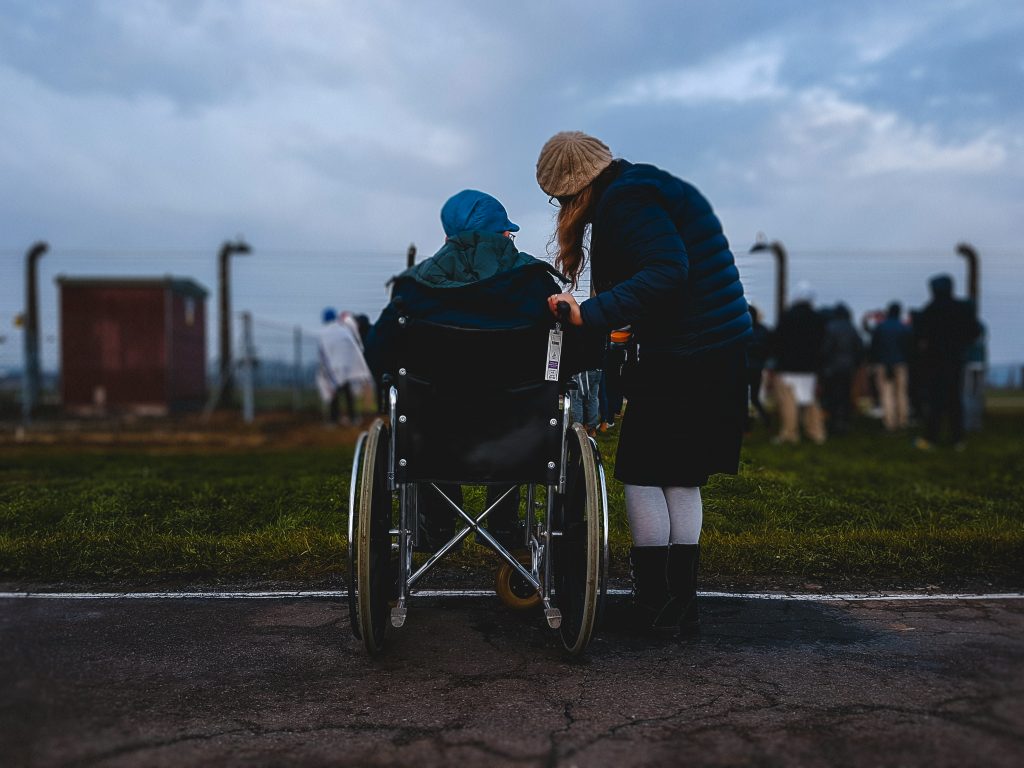

- Caregiving for seniors requires communication, fostering independence, establishing routines, self-care, and staying informed.
- Effective communication builds trust, simplifies tasks, and validates seniors’ feelings.
- Independence is fostered through environmental adaptations, active engagement, and respecting personal choices.
- Routines provide stability, with the need for flexibility for adjustments and proactive communication about changes.
- Caregivers need self-care practices, support networks, and access to resources for optimal caregiving.
As your loved ones age, the need for care and support often becomes a prominent aspect of family dynamics. Whether it’s a parent, grandparent, or another cherished elder, providing caregiving assistance requires patience, empathy, and practical knowledge. Navigating the challenges of caregiving can be overwhelming, but with the right approach and support, it can also be deeply rewarding. This article will explore five essential caregiving tips to make life easier for seniors and their caregivers.
1. Prioritize Communication
Effective communication is the foundation of a strong caregiver-senior relationship. By establishing open communication channels, you create a supportive environment where both parties feel heard and understood.
Establish Regular Check-Ins:
Scheduled check-ins serve as dedicated times to discuss any adjustments needed in their care plan, whether it’s adapting to new medications or addressing emerging challenges. These check-ins also allow caregivers to offer emotional support and reassurance, fostering a deeper bond between both parties.
Use Clear and Simple Language:
Simplifying communication ensures that instructions are easily understood, reducing the risk of confusion or misinterpretation. This approach promotes a sense of confidence and empowerment in seniors, as they feel equipped to actively participate in their care decisions.
Encourage Expression of Feelings:
Creating a safe space for seniors to express their emotions fosters emotional well-being and strengthens the caregiver-senior relationship. By validating their feelings and concerns, caregivers help seniors feel respected and valued, enhancing their overall quality of life.
2. Foster Independence
Maintaining a sense of independence is essential for seniors’ emotional well-being and dignity.
Adapt the Environment:
Installing features such as grab bars, handrails, and non-slip flooring can significantly improve seniors’ mobility and safety within their homes. These modifications enable them to navigate their environment with greater confidence and independence.
Encourage Participation in Daily Activities:
Involving seniors in tasks such as meal preparation, gardening, or hobbies not only provides mental stimulation but also fosters a sense of purpose and fulfillment. This active engagement contributes to their overall well-being and quality of life.
Respect Personal Choices:
Recognizing seniors as autonomous individuals with their own preferences and values is essential for preserving their dignity and self-respect. By respecting their decisions, even if they differ from our own, caregivers demonstrate empathy and foster mutual trust and understanding.
3. Establish a Routine
Consistency and predictability are key components of a stable and supportive caregiving environment. Seniors need to feel secure and in control of their surroundings with the right schedule.
Create a Daily Schedule:
Setting specific times for meals, medication, social activities, and rest helps seniors structure their day and reduces confusion or disorientation. Consistency in routine provides a sense of stability and security, which is particularly beneficial for seniors with cognitive impairments.
Communicate Changes in Advance:
When adjustments to the routine are necessary, such as medical appointments or visits from healthcare professionals, informing seniors in advance allows them to prepare mentally and emotionally. This proactive approach minimizes stress and enhances cooperation and compliance.
Be Flexible:
While routines offer stability, flexibility is essential to accommodate unexpected events or changes in seniors’ needs or preferences. Flexibility allows caregivers to adapt the schedule as necessary while maintaining a sense of structure and predictability.
4. Practice Self-Care
Caregiving can be physically and emotionally demanding. Therefore, it is important to highlight the importance of self-care for caregivers’ well-being.
Seek Support:
Building a support network of friends, family members, or fellow caregivers provides emotional support and practical assistance when needed. Additionally, considering respite care options, such as hiring a home health nurse, allows caregivers to take much-needed breaks and prioritize their own well-being.
Take Breaks:
Allocating time for rest and relaxation is essential for preventing caregiver fatigue and maintaining a healthy work-life balance. Whether it’s enjoying a hobby, spending time outdoors, or practicing mindfulness techniques, self-care activities rejuvenate caregivers and help them recharge.
Attend to Your Physical and Emotional Health:
Prioritizing healthy habits, such as regular exercise, nutritious eating, and adequate sleep, is crucial for sustaining energy levels and overall well-being. Additionally, seeking professional support through therapy or counseling can help caregivers manage stress and navigate complex emotions associated with caregiving.
5. Stay Informed
Continuous learning and staying informed about relevant health conditions, treatments, and resources empower caregivers to provide optimal care. Keeping track of medical information, accessing community resources, and networking with other caregivers ensure that caregivers remain knowledgeable and prepared.
Stay Up-to-Date on Medical Information:
Regularly reviewing and updating seniors’ medical records, including medication lists and treatment plans, helps caregivers stay informed and proactive in managing their health. Attending medical appointments and asking questions clarifies any uncertainties and strengthens the caregiver’s role as an advocate.
Research Available Support Services:
Exploring local resources, such as senior centers, support groups, and government programs, expands caregivers’ access to assistance and information. Connecting with these resources enhances the caregiver’s ability to provide comprehensive and holistic care.
Network with Other Caregivers:

Engaging with other caregivers through support groups, online forums, or community events provides opportunities to share experiences, exchange advice, and offer mutual support. These connections foster a sense of camaraderie and solidarity, reducing feelings of isolation and burnout among caregivers.
Caring for seniors requires dedication, compassion, and a commitment to ongoing learning and self-care. By prioritizing communication, fostering independence, establishing a routine, practicing self-care, and staying informed, caregivers can enhance the quality of life for both themselves and their loved ones. Remember, caregiving is a journey that requires support and collaboration. By implementing these tips and accessing available resources, caregivers can navigate the challenges of caregiving with resilience and compassion, creating a nurturing environment where seniors can thrive and age with dignity.